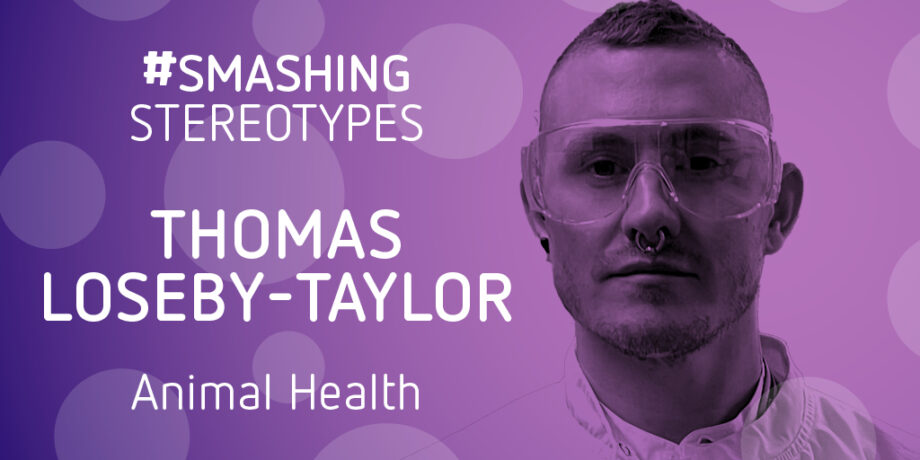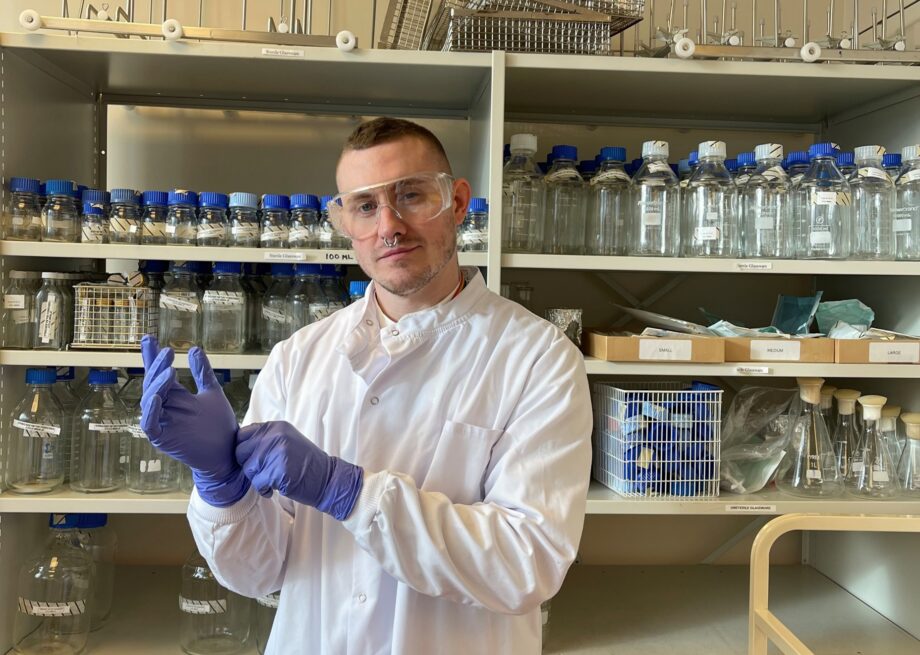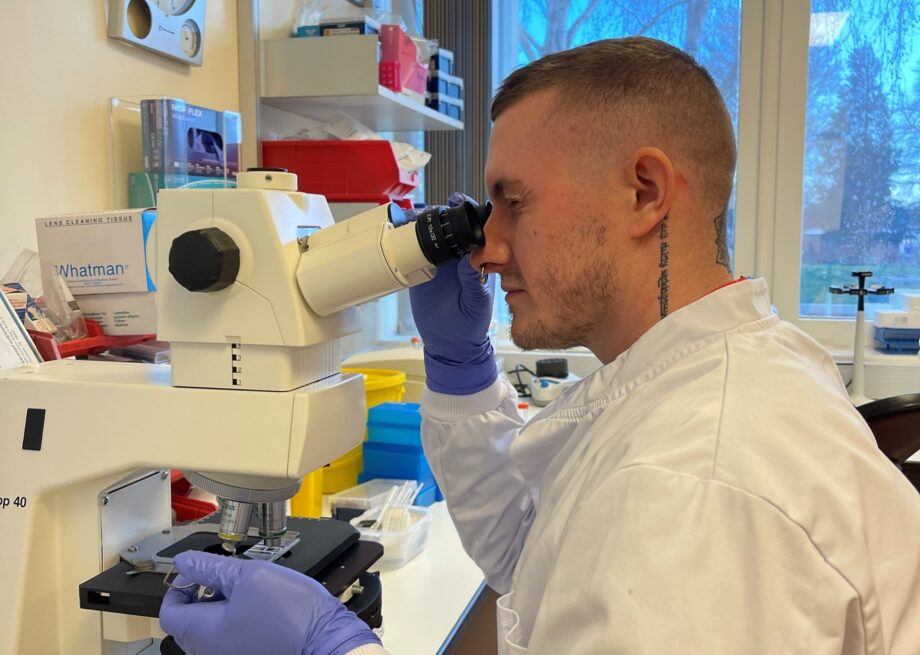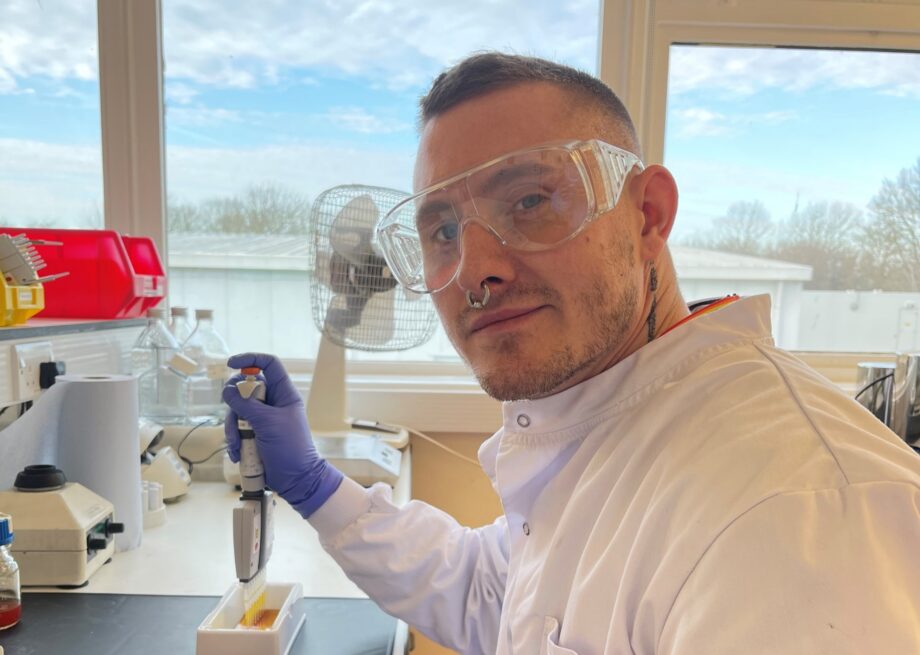MSD has provided partial funding towards the Smashing Stereotypes 2023 campaign.

Tom Loseby-Taylor
Pharmacovigilance Officer, MSD
Protecting pets against disease
Tom started working with animals at just 13. His first job was as a kennel assistant at a local veterinary hospital – a role he continued throughout school. At university, he studied Animal Welfare and Veterinary Science before becoming a veterinary nurse.
He is now Senior Pharmacovigilance Officer at the global pharmaceutical company, MSD, where he is also Rainbow Alliance Lead for Animal Health.
My parents were not “pet people”. I, on the other hand, have been fascinated by animals ever since I was a young child. Despite the pleading and persuasion, my parents weren’t giving in, and I grew up in a pet-free household.
To make sure I would be around animals when I was older, I decided that I would have to work with them! At college, I studied Animal Welfare and Veterinary Science and went on to become a veterinary nurse at a very busy veterinary hospital.

Sadly, as rewarding as my career was being a vet nurse, the hours were tough and I was doing a lot of emergency medicine. I was struggling to maintain a good work/life balance. So, in 2015, I joined the global pharmaceutical company, MSD, working in pharmacovigilance, which is all about drug safety.
Because we deal with sensitive data, we can’t often share much about our work. As a result, I think pharmacovigilance can seem a bit of a mystery to many people and is perhaps misunderstood. In essence, my job involves assessing and monitoring any reported adverse effects of pharmaceutical products after they’ve been licensed. We will also look at data trends and communicate with authorities in other countries. No two adverse event reports will be the same so you really feel like a detective working on an investigation!
To complicate matters slightly (!), working in animal health is a completely different ballgame from working with humans. We can’t speak the same language as animals, so they aren’t able to communicate their needs or when things aren’t going right. It’s much harder to figure out exactly what’s going to happen next.

The work is extremely time-sensitive. Following an adverse event, we have a six-day window in which to collect information, assess an event and report it to the authorities – time management is an absolutely essential skill. The industry is constantly evolving and sometimes made slightly more complex by the different processes in other countries, so being a fast learner and able to adapt to new regulations is also important.
The stereotypical view of science, I think, is that it’s boring and predictable. My experience is the complete opposite: Yes, the fundamentals of science are chemistry, physics, and biology, but what’s possible is almost limitless.

My role requires communication with many other people and you get to learn from and foster these connections – often learning a new skill unintentionally along the way. The motto I use often is: “Every day is a school day”!
I think teamwork is important for innovation because it blends people’s strengths and allows flexibility. Collaborating as a team also improves morale, I think, and enables personal growth. I find my job extremely rewarding, playing a vital role in keeping our four-legged friends safe, and healthy.